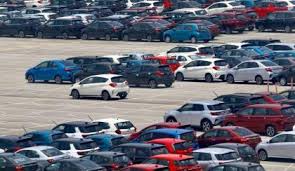According to Haji Mohammad Shehzad, chairman of the All Pakistan Motors Dealer Association (APMDA), the abolition of regulatory duty will result in a significant decrease in the cost of imported 1,800cc automobiles.
“The imposition of regulatory duty last year had made vehicles more expensive, which had a negative impact on sales and purchases,” he stated in an interview with a private news channel.
He praised the government’s choice to do away with the regulation requirement and expressed the optimism that, if the decision were to be quickly put into effect, there would be a major drop in vehicle prices in the months to come despite a potential dollar rate increase.
Shehzad claimed that as a result of rising car prices, consumers had stopped purchasing them, costing the business billions of dollars.
According to him, Honda Atlas Cars Limited, which formerly sold 50,000 vehicles annually, will only be able to sell 10,000 in 2023.
The head of the APMDA indicated that Pakistan might control pricing by producing its own cars rather than importing them and generate between $1 and 1.5 billion in revenue yearly.
He added that Pakistan was meant to import transport technology and produce its own vehicles within five years of signing a Memorandum of Understanding (MoU) in the 1980s, but sadly, that plan has not yet been put into action.
He added that the automobile sector would benefit if a ban on the import of secondhand cars older than three years was changed to five or seven years.
According to information provided by the Pakistan Automotive Manufacturers Association, 85,776 units were sold in the first nine months of the current fiscal year, which is a 50% decrease from the 172,612 units sold in the same period of FY22.
In the meantime, Pakistani automakers have recently raised prices significantly, citing the weakening of the currency among other reasons.
As the nation struggles with a shortage of foreign exchange reserves, the government has limited imports, including by enacting high regulatory taxes.










